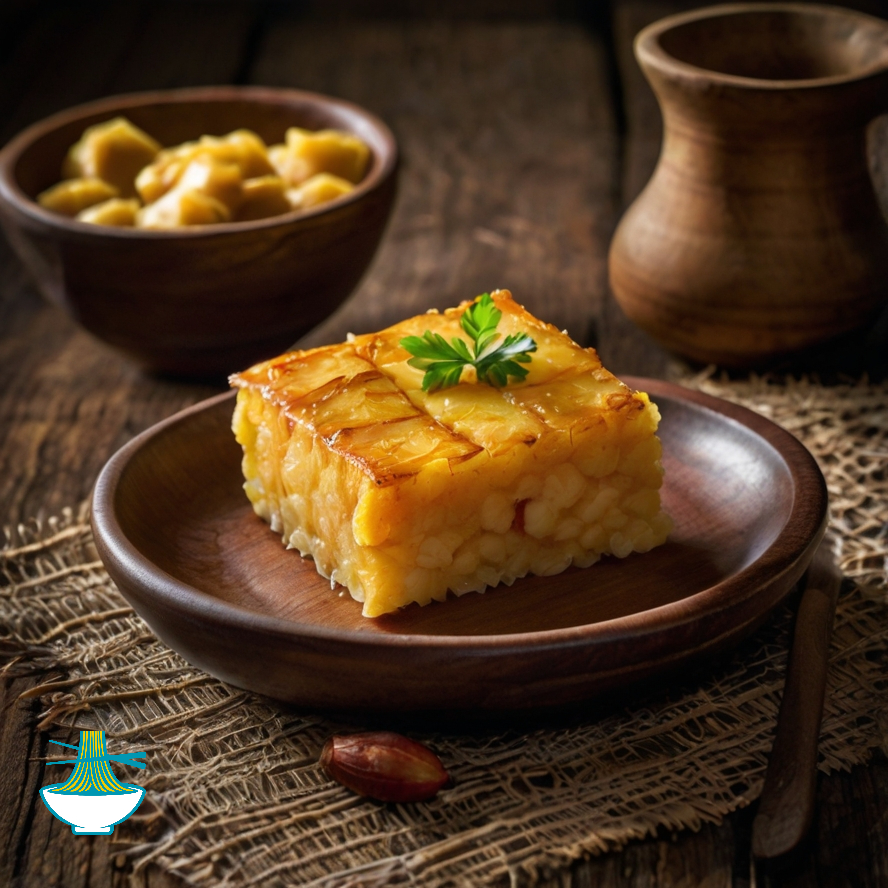Kwanga (Chikwangue) Cassava Baton Recipe: Easy Guide. Kwanga is a traditional dish from the Democratic Republic of the Congo (DRC), made from fermented cassava. This staple food is integral to Central African cuisine and is enjoyed as both a side dish and a snack. Kwanga’s unique flavor and texture result from a fermentation process, making it a distinct and cherished component of Congolese culinary culture. Explore this easy guide to making Kwanga (Chikwangue), the Cassava Baton that stands out in Congolese cuisine.

Kwanga is high in carbohydrates and fiber while being low in fat and protein. It provides a substantial energy source but should be consumed in moderation due to the presence of cyanide in raw cassava. Proper processing methods, including boiling and fermenting, mitigate this risk and make Kwanga safe to eat.
Ingredients:
- Cassava root
- Salt
Instructions:
1. Wash and peel the cassava root. Cut it into small pieces and place in a large pot. Cover with water and boil until tender.
2. Drain the water and allow the cassava to cool. Mash the cassava until smooth.
3. Spread the cassava paste on a clean surface or in a large bowl. Season with salt and mix thoroughly.
4. Form the paste into small balls or cakes, approximately the size of a golf ball.
5. Arrange the cakes on a clean, dry surface and let them dry for 1-2 days to allow fermentation.
6. Once fermented, Kwanga can be cooked in various ways. A popular method is to wrap the cakes in banana leaves and steam for about 30 minutes.
7. Unwrap and serve hot with meat or fish dishes.
Notes:
- Ensure proper processing of cassava to reduce cyanide content and make it safe for consumption.
- Kwanga is a beloved food in the DRC, often enjoyed at significant events and celebrations.

Nutrition Value:
1. Cassava Root
- Calories: 160 per 100 grams
- Carbohydrates: 38 grams per 100 grams
- Protein: 1.4 grams per 100 grams
- Fat: 0.3 grams per 100 grams
- Sodium: 14 milligrams per 100 grams
- Cholesterol: 0 milligrams per 100 grams
- Vitamins: Contains small amounts of vitamin C and some B vitamins (such as B6)
- Minerals: Provides potassium, magnesium, and calcium
Nutritional Benefit: Cassava root is primarily a source of carbohydrates, providing a significant energy boost. It is rich in dietary fiber, which supports digestive health, and contains essential minerals like potassium and magnesium, which are important for heart health and muscle function. Despite its low fat and protein content, it plays a crucial role in many diets due to its versatility and energy-providing qualities.
2. Salt
- Calories: 0 per 100 grams
- Carbohydrates: 0 grams per 100 grams
- Protein: 0 grams per 100 grams
- Fat: 0 grams per 100 grams
- Sodium: 38,000 milligrams per 100 grams
- Cholesterol: 0 milligrams per 100 grams
- Vitamins: Contains no vitamins
- Minerals: Contains sodium and chloride
Nutritional Benefit: Salt is essential for maintaining fluid balance in the body and for proper nerve and muscle function. It helps in regulating blood pressure and volume. However, it is important to use it in moderation, as excessive sodium intake can lead to health issues like hypertension and cardiovascular diseases.


Comments